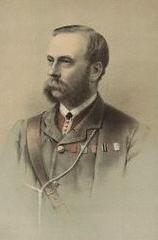A Quote by Richard Marshall
Kant argued that, where nature could be considered beautiful in her acts of destruction, human violence appeared instead as monstrous. However, a misreading of Kant in Romantic philosophy led to the idealization of the murderer as a sublime genius that has colored constructions of that criminal figure ever since.
Related Quotes
For Immanuel Kant, the term anthropology embraced all the human sciences, and laid the foundation of familiar knowledge we need, to build solidly grounded ideas about the moral and political demands of human life. Margaret Mead saw mid-twentieth-century anthropology as engaged in a project no less ambitious than Kant's own, and her Terry Lectures on Continuities in Cultural Evolution provide an excellent point to enter into her reflections.
Kant, discussing the various modes of perception by which the human mind apprehends nature, concluded that it is specially prone to see nature through mathematical spectacles. Just as a man wearing blue spectacles would see only a blue world, so Kant thought that, with our mental bias, we tend to see only a mathematical world.
What sparks wars? The will to power, the backbone of human nature. The threat of violence, the fear of violence, or actual violence, is the instrument of this dreadful will. You can see the will to power in bedrooms, kitchens, factories, unions and the borders of states. Listen to this and remember it. The nation state is merely human nature inflated to monstrous proportions. QED, nations are entities whose laws are written by violence. Thus it ever was, so ever shall it be.
Just as we might take Darwin as an example of the normal extraverted thinking type, the normal introverted thinking type could be represented by Kant. The one speaks with facts, the other relies on the subjective factor. Darwin ranges over the wide field of objective reality, Kant restricts himself to a critique of knowledge.
Kant regards the universalizability test for maxims as focused on a very special sort of situation: one where the agent is tempted to make an exception to a recognized duty out of self-preference. The universalizability test is supposed help the agent to see, in a particular case of moral judgment, that self-preference is not a satisfactory reason for exempting yourself from a duty you recognize. Kant thinks, as a matter of human nature, that this situation arises often enough and that we need a canon of judgment to guard against it.
Don't Shoot is a work of moral philosophy that reads like a crime novel - Immanuel Kant meets Joseph Wambaugh. It's a fascinating, inspiring, and wonderfully well written story of one man's quest to solve a problem no one thought could be solved: the scourge of inner city gang violence This is a vitally important work that has the potential to usher in a new era in policing.
There is a very common, though also very silly, picture of Kant according to which as empirical beings we are not free at all, and we are free only as noumenal jellyfish floating about in an intelligible sea above the heavens, outside any context in which our supposedly "free" choices could have any conceivable human meaning or significance. Part of the problem here is that Kant faces up honestly to the fact that how freedom is possible is a deep philosophical problem to which there is no solution we can rationally comprehend.



























